GFinger
2016-07-19

TIPS📝
We take an interest in gardening for a variety of reasons—higher quality produce, exercise in the great outdoors etc.
When you're just getting started, gardening can be intimidating.GFinger will help you learn the basics, starting with these steps.
Step 1: Gather Your Gear
Proper tools provide us more comfort and efficiency, which means less work for us!
Here's what you'll need to get started.
1 Trowel - Used for weeding and digging small holes.
2 Gardening gloves - As much as we like getting our hands dirty, we don’t like getting them that dirty. A good pair of gloves can also protect your hands from bugs and prickly plants and weeds.
3 Sun hat - For UV protection, make sure this is wide-brimmed and cinches.
4 Watering can or hose – What you need will vary depending on your garden’s water needs and proximity to your water source.
5 Wheelbarrow - For larger gardens, you'll need one to transport mulch, dirt, and compost.
6 Roundhead shovel - For digging larger holes.
7 Rake - Ideal for spreading mulch, and gathering or transporting debris that has collected around your garden and between plants.
8 Shears - Use to prune away browning leaves or snipping herbs.
9 Pitchfork - This is an essential tool if you are creating a compost heap or pile.
Continued…


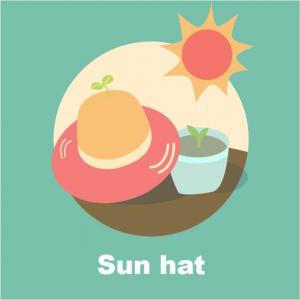
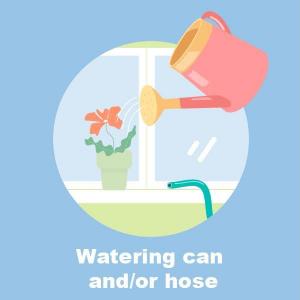
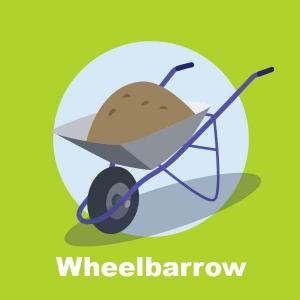
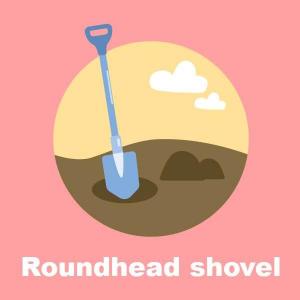
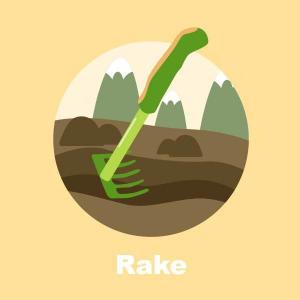


We take an interest in gardening for a variety of reasons—higher quality produce, exercise in the great outdoors etc.
When you're just getting started, gardening can be intimidating.GFinger will help you learn the basics, starting with these steps.
Step 1: Gather Your Gear
Proper tools provide us more comfort and efficiency, which means less work for us!
Here's what you'll need to get started.
1 Trowel - Used for weeding and digging small holes.
2 Gardening gloves - As much as we like getting our hands dirty, we don’t like getting them that dirty. A good pair of gloves can also protect your hands from bugs and prickly plants and weeds.
3 Sun hat - For UV protection, make sure this is wide-brimmed and cinches.
4 Watering can or hose – What you need will vary depending on your garden’s water needs and proximity to your water source.
5 Wheelbarrow - For larger gardens, you'll need one to transport mulch, dirt, and compost.
6 Roundhead shovel - For digging larger holes.
7 Rake - Ideal for spreading mulch, and gathering or transporting debris that has collected around your garden and between plants.
8 Shears - Use to prune away browning leaves or snipping herbs.
9 Pitchfork - This is an essential tool if you are creating a compost heap or pile.
Continued…









6
0
GFinger
2016-06-23

GET✅:If you feel puzzled at growing flowers,just ask for help.
1How to post SOS;
2How to answer flower friends' SOS


1How to post SOS;
2How to answer flower friends' SOS


3
0
Citibear23: Asparagus fern
GFinger
2016-06-21

Tips🌿
Possible health benefits of rosemary
Rich source of antioxidants and anti-inflammatory compounds- these are thought to help boost the immune system and improve blood circulation. Laboratory studies have shown rosemary to be rich in antioxidants, which play an important role in neutralizing harmful particles called free radicals.
Improving digestion - In Europe rosemary is often used to help treat indigestion - Germany's Commission E has approved it for the treatment of dyspepsia. However, it should be noted that there is currently no meaningful scientific evidence to support this claim.
Enhancing memory and concentration - blood levels of a rosemary oil component correlate with improved cognitive performance, according to research in Therapeutic Advances in Psychopharmacology, published by SAGE.
Neurological protection - scientists have found that rosemary is also good for your brain. Rosemary contains an ingredient, carnosic acid, that is able to fight off free radical damage in the brain.
According to a study published in Cell Journal, carnosic acid "may be useful in protecting against beta amyloid-induced neurodegeneration in the hippocampus."
Prevent brain aging - Kyoto University researchers in Japan revealed that rosemary may significantly help prevent brain aging.
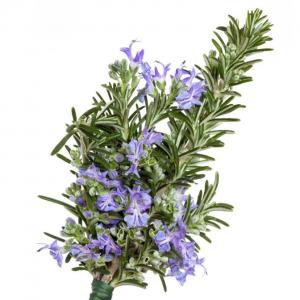


Possible health benefits of rosemary
Rich source of antioxidants and anti-inflammatory compounds- these are thought to help boost the immune system and improve blood circulation. Laboratory studies have shown rosemary to be rich in antioxidants, which play an important role in neutralizing harmful particles called free radicals.
Improving digestion - In Europe rosemary is often used to help treat indigestion - Germany's Commission E has approved it for the treatment of dyspepsia. However, it should be noted that there is currently no meaningful scientific evidence to support this claim.
Enhancing memory and concentration - blood levels of a rosemary oil component correlate with improved cognitive performance, according to research in Therapeutic Advances in Psychopharmacology, published by SAGE.
Neurological protection - scientists have found that rosemary is also good for your brain. Rosemary contains an ingredient, carnosic acid, that is able to fight off free radical damage in the brain.
According to a study published in Cell Journal, carnosic acid "may be useful in protecting against beta amyloid-induced neurodegeneration in the hippocampus."
Prevent brain aging - Kyoto University researchers in Japan revealed that rosemary may significantly help prevent brain aging.



8
2




